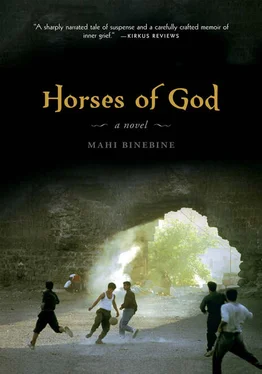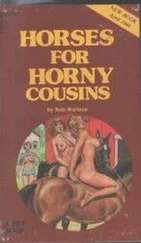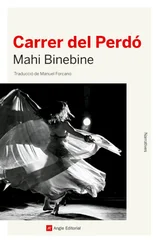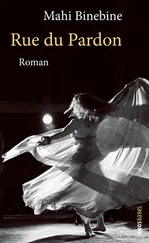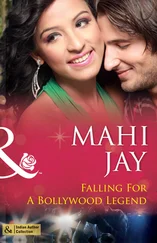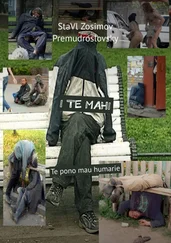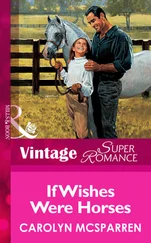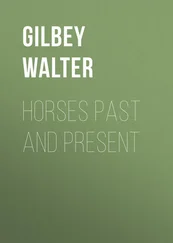I’d see her on Tuesdays, which was market day, and we’d go out together, wandering round the tent stalls that had been put up overnight. Douar Scouila’s customary chaos would be multiplied a hundredfold. Men would jostle with beasts in happy confusion. And they’d be shouting, squabbling, laughing, guzzling, and belching all round the great mounds of brightly colored spices displayed on the ground, part of a vast throng: street vendors crying their wares, vying to make themselves heard above the din, chickens with their legs tied together cackling round farmers, braying donkeys collapsing under overloaded carts, a chanting chorus of blind men warning of Judgment Day. I knew every one of the thieves who operated round there. They weaved through the crowd, sharp-eyed and quick with their hands. We’d observe their maneuvering with glee: a deft slit of the razor on a back trouser pocket and they’d shadow their victim, patiently waiting for the wallet to drop. Ghizlane would laugh and give me a little tap on the back. Midday already. The aroma of grilled sausages, snail soup, and puréed broad beans was making us hungry. We’d buy ourselves a sandwich and devour it under a tree. Refreshed, we’d plunge back into the fray. Stopping by the fortunetellers was obligatory, because Ghizlane was eager to find out everything there was to know. Those lowlifes were like weeds sprouting all over our misery. According to them, poverty would soon be abolished and love would reign supreme in Douar Scouila. They all but promised the resurrection of the dead. Ghizlane lapped up the good things foretold by the cards. Her eyes would light up the way they did in front of a fabric stall, when she’d start fingering and rummaging through the brightly colored materials, giving me a great many knowledgeable explanations about the provenance of the different wools, cottons, cloths, and satins. She’d criticize the prices and wouldn’t buy much in the end. Or she’d spend hours haggling over a reel of thread. I’d be laughing and embarrassed at the same time. Sometimes she made me go to the barber — he too operated from a tent — because she thought I needed a haircut. Sitting on a stool, she waited, smiling at me in the mirror. She said that short hair really suited me; she thought I looked handsome. I thought she was beautiful too, but I didn’t have the guts to say so. I once managed to stammer a compliment about her long black hair. She smiled. Walking side by side, our hands would brush and we’d pretend not to notice; we acted as if the shivers we felt were just chance, or the coolness of the morning. We’d stop at the stall selling sunflower seeds and buy ourselves a cone. She’d slip a note into my pocket, since she knew I was broke and thought it more proper for the man to pay. And she’d refuse to take it back. So we’d go on, wandering aimlessly, lingering in a crowd that had formed round a singer performing with his tam-tam. If she could have, she’d have danced with him. And the day would pass, as if in a dream. We’d be on our way home before sunset. Ghizlane didn’t like to leave Mi-Lalla on her own too long; she was getting old and had more and more trouble keeping herself occupied. We’d bring her nougat, which she adored, though she could only suck it, since the stumps still clinging to her gums were about to fall out. If she’d had a good week, Ghizlane would bring her a scarf, a turban, or a prayer mat showing a sparkling Mecca. Mi-Lalla would instantly sniff back her tears. With age, she’d become very emotional.
That last evening, before the big day, we’d come back from the souk without saying much. Ghizlane hadn’t laughed the whole walk home, which had gone quickly for me. She must have noticed the anguish my eyes couldn’t hide. I’d have liked to walk and walk. I’d have liked to feel her slender fingers touch mine one last time, but we were already home. Right outside her house in the dark shadow of the blind alley, I took my courage in both hands and kissed her.
WHEN THE LIVING think about me, they open up a small window into their world. And I slip through on the quiet, not making a sound. I take care not to frighten them, otherwise they’ll balk, throw up the dread walls of oblivion, and leave me confined in my purgatory, where I’m dying of boredom. That’s why, as much as possible, I resist the temptation to intervene in earthly affairs. You’re surprised, aren’t you, that a wandering soul can interfere in the world of the living? Well, you’ll just have to take my word for it. I’m not allowed to reveal any more than that. What I can say is that we possess a limited number of signs that we place along the paths of our nearest and dearest. So, as long as they bother to reflect on them, we have at least some scope for influencing particular situations. This can come about in different ways. Messages in dreams are the easiest for them to read, but on occasion, I admit, they can be quite disconcerting.
Sometimes I’m overcome by the urge to scream when I find misguided dreamers following in my footsteps; I have to force myself to abide by our rules. I want to tell them: all the promises they make you, however enticing, simply lead to death. So I suffer, in silence, and try to keep my demons in check. I sometimes tell myself that perhaps being unable to intervene fully and change things is itself hell, because I’ve been on fire since the day I died. Abu Zoubeir lied when he said we’d go straight to paradise. He used to say we’d already suffered our share of Gehenna in Sidi Moumen and therefore nothing worse could happen to us. And even that the faith he was instilling in us day after day was forging the shield that would enable us to step clear over the seven heavens to reach the light. He’d describe each stage, with its pitfalls, its temptations, its doubts and delirium. To hear him tell it, you could have sworn he’d died and come back to life ten times over, so intimately did he know every detail of the great journey, so deep was the conviction in his eyes as he related it.
In another garage, in another slum, there’s the photo of me that Abu Zoubeir pinned to the wall alongside photos of the other martyrs: Nabil smiling beatifically; Khalil with a fixed grin; Blackie, his dark complexion gone, staring with his wide protruding eyes and making a victory sign; and my brother Hamid, true to form, displaying all the swagger of a born leader. This way, Abu Zoubeir glorifies us forever in the fight against the infidels. Looking at our portraits, other boys will dream of justice and sacrifice, as we once did, watching videos of the Palestinian or Chechen martyrs.
Abu Zoubeir, our spiritual guide, wasn’t always religious. For a long time he’d led a debauched life, which he didn’t attempt to hide. On the contrary, he’d use it to convince us of the virtues of abstinence. He could be completely objective because he’d been down that road. Like many of the chosen ones who’d been touched by grace, he’d fought a relentless battle against the mediocrity of vice. Being close to the light, he was now filled with inexpressible bliss, an inner peace superior in every way to that produced by hashish. Abu Zoubeir knew the right words, the greedy words to implant in the memory, which, as they grow, ingest all the waste piled up there. He’d been born and raised in Douar Lahjar, a shantytown even more run-down than ours, if it’s possible to compare derelictions. His encounter with God took place in Kenitra prison, where he spent the best part of a decade. He didn’t like to talk about his crime, but we knew that rape and fraud were involved. It was a period of his life he described as supremely wayward. He used to say that prison had saved him from himself; having the luck to meet men of faith there was a gift from heaven. So he felt obliged to give back some of the blessings he’d received. His new purpose was to help us purify our souls, to lead us on to the path of righteousness. In fact, that path led straight to death, our own and that of our fellow man, whom we were meant to love. Slam into a blind wall, surrounded by nothingness, where there’s only regret, remorse, solitude, and desolation. Slam, slam, slam. .
Читать дальше
